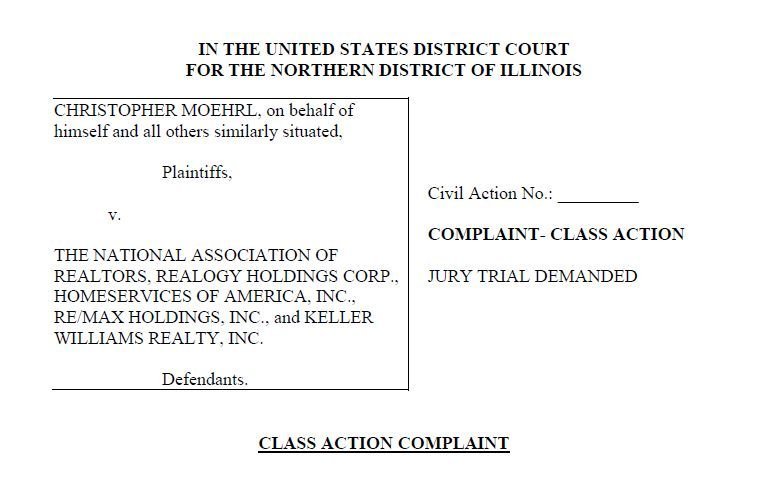Debunking Class Action Lawsuits: A Closer Check Out Legal Process
Course action lawsuits can be intricate and daunting, often shrouded in a shroud of secret for those not familiar with the legal proceedings entailed. Getting a deeper understanding of these legal actions is important, as they serve as an effective tool for people to seek justice and hold corporations liable. In this discussion, we will certainly demystify course action claims, taking a closer check out the different aspects of the legal process. From comprehending the standards for class activity qualification to the function of course representatives, and from the procedure of class certification to the resolution of these suits, we will certainly unwind the intricacies and clarified the internal workings of this lawful system. So, allow's dive into the world of course action claims and uncover the details that lie underneath the surface area.
Understanding Course Activity Lawsuits
Understanding Class Activity Lawsuits calls for a comprehensive examination of the lawful process associated with cumulative lawsuits. Course action suits are a type of lawsuit where a team of individuals with similar claims or grievances collaborate to start a suit against a typical accused. This form of litigation permits people with minimal sources to jointly look for justice, as it integrates the toughness of numerous specific insurance claims into a solitary lawful action.
The process starts with the recognition of a lead plaintiff or course agent who submits the preliminary grievance in support of the whole class. The court after that establishes whether the instance meets the needs for class qualification, that include commonness, numerosity, typicality, and adequacy of depiction. If accredited, the court notifies possible class participants, providing a chance to opt-out if they wish to seek their cases separately.
When the class is accredited, the lawsuits proceeds via numerous phases, consisting of exploration, activity method, and, if essential, trial. The outcome of the legal action can lead to a judgment or a negotiation, which is binding on all course members unless they pick to opt-out. Class action legal actions can include a variety of legal concerns, such as consumer security, safety and securities fraudulence, work discrimination, and ecological damage.
Recognizing the nuances of class activity lawsuits is crucial for both defendants and plaintiffs entailed in collective litigation. It calls for a complete understanding of the lawful requirements for accreditation, the civil liberties and obligations of class participants, and the possible benefits and dangers linked with protecting or seeking versus class action claims.
Identifying Class Action Eligibility
To establish whether a lawsuit qualifies as a class action claim, details criteria need to be fulfilled. These criteria are designed to guarantee that the situation can appropriately stand for the interests of a large group of individuals who have actually suffered similar harm or have been affected by the same issue. The essential element in identifying course activity eligibility is the presence of an usual concern or problem that affects all potential course participants.
First of all, a class activity legal action requires numerosity, which means there must be a significant variety of possible class members involved. This ensures that a course action is an efficient means to resolve the claims of a huge team of individuals, as opposed to having each individual submit a private suit.
Secondly, there have to be commonness among the claims of the possible class members. This suggests that there need to be a typical question of regulation or truth that is central to the instance. A course action might not be suitable. if each prospective class participant's insurance claim is unique and unconnected to the others.

The Duty of Class Rep
Class reps see play a critical role in class activity lawsuits by representing the rate of interests of the whole class. These individuals are selected from within the class to function as the general public face of the lawsuit and are in charge of choosing on part of all class members. The function of course reps entails various obligations and obligations throughout the legal proceedings.
One of the main obligations of course reps is to provide information and assistance to their fellow class members. They function as a factor of get in touch with and interaction in between the course participants and the lawyers representing them. This consists of maintaining the class participants notified around crucial updates, addressing their inquiries, and addressing any concerns they may have.
Course reps additionally have the duty to proactively take part in the litigation process (BioVie class action lawsuit). This involves functioning very closely with the attorneys to develop legal techniques, gathering proof, and supplying testimony if necessary. They have to be proactively associated with all facets of the case to make sure that the most effective interests of the whole class are represented
In addition, course reps are in charge of authorizing negotiations or various other resolutions reached in the suit. They must meticulously examine the terms of the negotiation and make a decision that remains in the best passion of the entire course. This decision-making process calls for careful factor to consider and assessment with the course members.
The Refine of Class Accreditation
The process of accrediting a course in a class activity suit entails a thorough analysis of particular standards to identify if the instance meets the needed needs for class qualification. Class accreditation is a critical action in the lawsuits procedure as it figures out whether a lawsuit can proceed as a course activity, allowing a big team of people with comparable cases to be stood for collectively by one or a couple of people.
To obtain class accreditation, the plaintiff should demonstrate that the proposed class satisfies certain requirements. Typicality calls for that the cases or defenses of the course agents are common of those of the class. Adequacy of representation ensures that the course reps will relatively and effectively secure the rate of interests of the class.
The court will scrutinize these standards and the complainant's evidence to determine if the recommended course satisfies the required requirements. The court may additionally think about other variables, such as whether a course action is the premium technique to fix the conflict and whether the course is adequately cohesive.

As soon as the court gives class certification, the suit can proceed as a course activity, allowing the complainants to jointly seek relief and possibly get a judgment or settlement that profits the entire class.
Handling Class Activity Legal Actions
When class accreditation has been provided, the following action in resolving a course action lawsuit is to browse the process of litigation or negotiation negotiations. Lawsuits refers to the lawful procedures in court, where the plaintiff's lawyer presents proof and disagreements to support their i thought about this cases, and the defendant's lawyer counters with their own proof and arguments. This procedure can involve numerous stages, such as pretrial activities, discovery, and test. Throughout pretrial movements, both events may submit movements to disregard the case or limit the issues in opinion. Discovery enables each side to collect evidence and information from the various other party with approaches such as file depositions, requests, and interrogatories. If the case continues to trial, both celebrations provide their instance before a judge or court, that will certainly then make a decision the end result.
On the various other hand, settlement arrangements include discussions between the events to get to an equally appropriate resolution without going to trial. go to this site Negotiation supplies might be made at any stage of the lawsuits process, and if both parties concur, a settlement agreement is gotten to.
Final Thought
To conclude, course activity suits play a vital function in providing justice and settlement to big groups of people who have actually been hurt by the very same entity. By accrediting a class and assigning class reps, the legal procedure ends up being more available and effective for the plaintiffs. Solving these lawsuits can be a complicated and lengthy procedure, but it is necessary in holding corporations liable for their actions and making sure reasonable results for all influenced events.
From comprehending the standards for class action qualification to the role of class reps, and from the process of class qualification to the resolution of these suits, we will certainly untangle the complexities and dropped light on the internal operations of this legal mechanism. The vital element in determining course action eligibility is the visibility of an usual inquiry or issue that impacts all possible course members.
If each potential class participant's case is unassociated and special to the others, a course activity might not be ideal.
Class representatives play a critical duty in class action lawsuits by representing the rate of interests of the entire class.When course accreditation has been approved, the following action in dealing with a class activity suit is to navigate the procedure of litigation or negotiation arrangements.